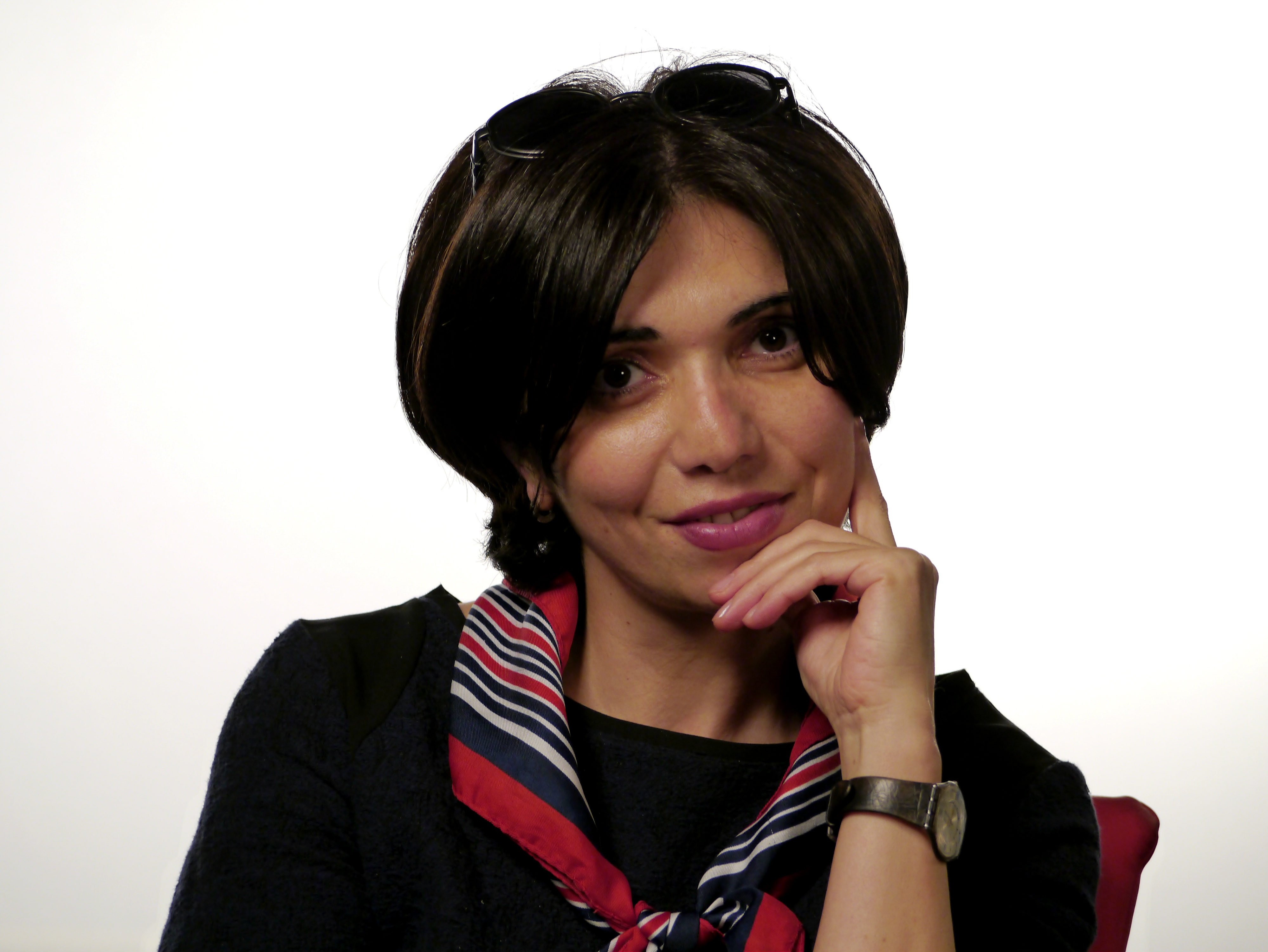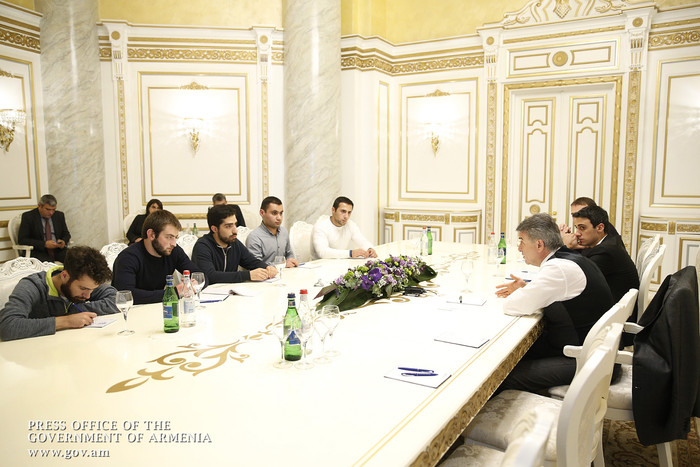At a meeting of the prime minister and members of the group For the Development of Science, government representatives refused the group’s condition to meet with journalists present.
The refusal was justified this way: “The discussions will be filmed by the government’s press service, then the video will be provided to both media outlets and demonstrators.” And that’s what happened: the video of the meeting was published unedited.
In what way could the presence of government-accredited journalists interfere with the dialogue if the topic of the conversation was of public significance?
I’m referring to the draft Law on the Status of Military Service and Servicemen adopted on first reading at the National Assembly on October 27.
The bill proposes the deferment of compulsory military service for the purpose of study only if the citizen studying in an integrated educational program, bachelor’s program, or certified specialist program at an accredited university signs a contract with the Ministry of Defense to undergo military training during his studies and after graduation, to enter into service at a location and under conditions stipulated by the ministry. In that case, however, students must serve three instead of two years.
Some students objected and expressed their disagreement of the bill by boycotting classes. On November 14, five members of the group For the Development of Science issued a statement about going on a hunger strike.
A key issue at the meeting of officials and student strikers was the presence of journalists.
The senior officials preferred to meet with group members without the presence of media (with the exception of Minister of Education and Science Levon Mkrtchyan).
It was the issue of journalists’ representation that became a reason for the cancellation of the meeting between For the Development of Science members and Minister of Defense Vigen Sargsyan.
Armenia TV covered discussion of the draft law in parliament on November 14, contradicting the most important rule of journalism: impartiality.
Specifically, only the speeches in support of the bill are presented in this reportage; in that case when other speeches were also heard from the podium.
For example, this speech, when the MP presents For the Development of Science’s reasons why the group is against the bill. The Public Radio reportage of the same parliamentary session presented the discussions without bias.
Also a one-sided interview by the journalist was this episode of the program Off the Agenda. The guest was April War veteran Harutyun Badalyan. The occasion (or reason) for the meeting was the disagreement over the draft law on military service.
When only one of the parties in a controversial issue is invited, the host assumes the role of the “other side,” filling the gap of a second guest.
The host with her inflections, facial expressions, and the way she posed questions to the guest is biased. “Harutyun, you were born in Yerevan, accepted into the agrarian university’s lycée and then the same university. You left your studies unfinished, went to the army. The April War began. You were on the frontline. You were injured; if I recall correctly, you were in the hospital for one month. When lying down in the hospital, when you were left alone with your thoughts, did it ever cross your mind that you could’ve not gone into service, not leave your studies unfinished, avoided the April War, then after completing your studies, either you’d go or you wouldn’t go?” (1:18–1:59 mins).
“Harutyun, look, many of your peers today protest the elimination of the right to [draft] deferment; they say when you go to the army and you return, you no longer have the desire to continue your studies, I apologize for my word” (4:37–4:54 mins).
In that case when For the Development of Science members have mainly served in the army; group member Davit Petrosyan during the April War went to the frontline with the Yerevan State University volunteer detachment.
RFE/RL’s Armenian service (Azatutyun) also interviewed only one side; in this case, two members of the group For the Development of Science.
The host “broke down” the one-sidedness of the program, with retaliatory questions. “If I’m not mistaken, the Dean of the Faculty of Geography was saying live on air that barely 4–5 people can be found among the demonstrators who really want to get involved in science. Arriving at this problem — what do you really want to solve with this fight, getting an education after all? You’ve already served [in the army] and you don’t have this problem [said to Davit Petrosyan]. Heard are counter-arguments that you also have this opportunity with the law adopted upon first reading, what’s hindering you? If you want to study, by all means study; moreover, the defense ministry undertakes paying the full tuition fees of your bachelor’s degree; then when you go to serve for three years, you want to do a master’s degree, they want to pay for that too, they’re ready to pay. That is to say, your free education is guaranteed. If you want, by all means; if you don’t want, after turning 18, you are drafted into the army, and if you truly have such a big motivation for science, what’s in the way of your going at age 20 and getting involved in science for life?” (6:43–7:52 mins).
Let’s return to the original question: would the presence of journalists somehow have affected the outcome of the meeting of the student group, prime minister and ministers? Most likely no.
Judging the boycott of classes and hunger strike organized by For the Development of Science and coverage of the discussion of the bill in parliament, already as a news consumer, I myself give preference to live broadcasts and unedited videos.
Lilit Avagyan







